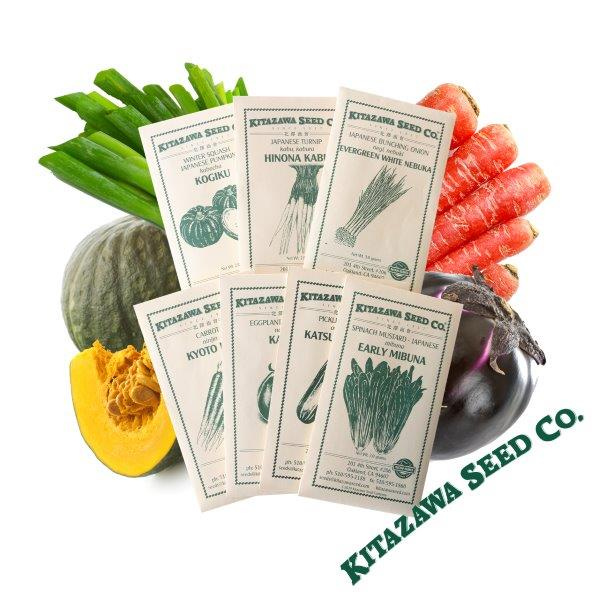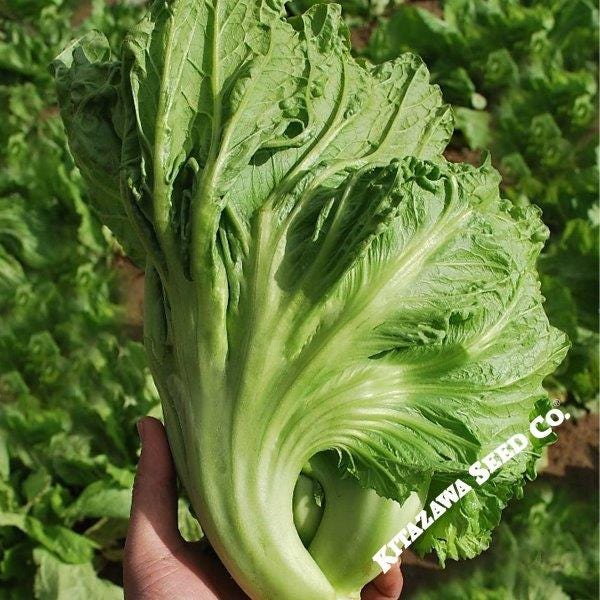ISSUE 95, HEIRLOOM SEED COMPANIES, Part 6, Kitazawa Seed Company
Kitazawa Seed Company
Since 1917 Kitzawa Seed Company has been the favorite source of seed for Asian vegetables. Located throughout the 20th century at 1111 Chapman Street, San Jose, California, it has recently been subsumed by True Leaf Market of Utah who maintain Kitazawa’s famous strains of Japanese, Chinese, Thai, and some Korean vegetables. The offerings range from herbs employed in Chinese medicine, such as Agastache and Toraji to Asian strains of squash and corn to sixteen varieties of soybean.
Founded by Japanese-trained seedsman Giju Kitizawa (1889-1969) of Nagano, Japan, the Kitizawa Seed Company organized in 1917. It operated until the Japanese internment of World War II, and resumed operation after the armistice. It continued in the family until 2,000 when it was purchased by Maya Shiroyama and moved to Oakland, CA. They maintained the business through COVID, but in 2022 determined that the operation would better be served by a seed company that had managerial muscle and the capital to maintain robust grow-outs of varieties, so they turned the Kitigawa name and seed strains to True Leaf Market of Utah, while staying with the business as educators and ambassadors. The old Kitizawa website remains as an internet ghost, but the seeds are available through True Leave Market: https://trueleafmarket.com/collections/asian-garden-seeds
During much of its history, the Kitizawa company was as much a broker of Asian grown seed as an adapter of Asian seed to West Coast soils and growing conditions. A percentage of the seed offered had been grown in Japan, or Korea, or Thailand, or Taiwan and shipped to the United States for resale. One consequence of this connection has been the quick insertion of the best new varieties bred in Japan and China into the offerings list. These include the beautiful hybrid turnips—Hakurei, Oasis, Tsugaru Scarlet (the reddest extant turnip, intenser than Hidabeni), Fuku Komachi. Two varieties grown for greens are on the list as well: Nozawana and Namenia. This item most in demand is the icicle shaped red top/white body Hinona Kabu.
Kitizawa has long been famed for two categories of vegetables: bunching onions (think Spring onions) and eggplants. The eggplants include two varieties of red Salonum aethiopicum, the Thai green round and purple round, three additional varieties of purple including the nearly cylindrical Long Ping Tung, and several black skinned varieties including the tasty Konasu. They are the only source of the Japanese pickling eggplant I’ve found in North America.
Da Ping Pu Mustard, a Chinese pickling variety
In my eyes the Kitizawa brassica seeds, their mustard varieties and Mizuna and Tat Soi, stand at the heart of their distinctive contribution. Kitizawa was the conduit for the coming of Giant Red Mustard into American Gardens. The American South has one thick ribbed mustard variety, the Feaster Family mustard from Florida. But the Chinese have bred several thick ribbed types for pickling and their seeds are here: Da Ping Pu, Shuidong, and the generically named “Chinese Mustard.” While some of the mustards resemble North American varieties in size and configuration, they tend to be less fiery; Miike Giant has less bit that Florida Giant. But then there is Wasabi, seeds of which are offered by Kitizawa.
Link to site: https://trueleafmarket.com/collections/kitazawa





